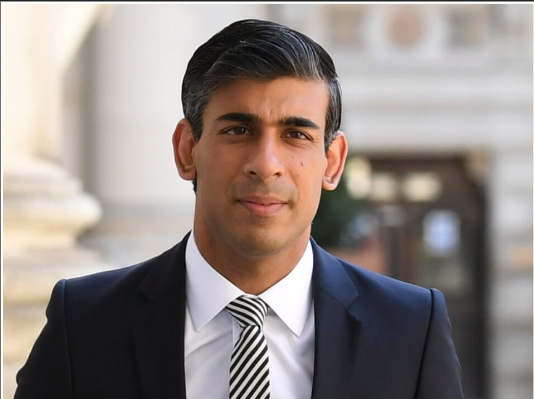
As reactions continue to trail the ban imposed on immigrant students from bringing members of their family into the United Kingdom as dependants, among other provisions of the law, some experts in the field of immigration and education have shed more light on the new policy and its implications on the pursuit of acquiring international education.
Education researcher, Dr Peter Ogudoro, in his reaction to the development that had been generating a lot of buzz mostly from people of Nigerian origin, said records have shown that the United Kingdom as a country and as a government had been generous and welcoming with respect to Nigerians who like to come to the UK to study.
He explained that the UK government never made it very difficult for people who genuinely want to improve their knowledge and skills and enhance their capacity to be able to enjoy a quality life and be globally competitive.
Noting that Nigerians, upon recognising this fact, and of course influenced by the good examples made by people who had benefited from the education offered by the UK government, Ogudoro, however, also argued that poverty was a factor driving people out of the country.
The researcher said, “What we find out is that our poverty here (Nigeria), which has a lot to do with bad governance as our political leaders have not done well over the years, propelled us to want to leave the country. But at the same time, we don’t want to leave our families behind for them to suffer.
“So, the UK government has realised that for some years now, not just Nigerians, but people in many countries who are coming to the UK to study, legitimately want to carry their family members along, maybe spouses and children, who they don’t want to leave behind while they are in the UK improving themselves.
“And that obviously, I believe, is imposing some significant burden on the public treasury in the UK, and education first and foremost should be a revenue earner for the UK government, and that is one of the reasons why they think that people should come and study.”
Ogudoro said when immigrants come to the UK to study, pay their fees, and bring two to three family members along, the UK government might have probably discovered that much had not manifested in terms of the net dividend expected to be derived from welcoming people from other countries to study in the UK.
He said, “They (the UK government) look at data because it is a country that doesn’t work on assumptions, and data is obviously revealing that a lot of people that the students studying in the UK drag along are actually not highly skilled people.
“When you drag children who are at the kindergarten level, who come and get into the UK school system and are to be catered for with funds from the treasury, you are making a demand that the UK government may not, given their current circumstances, find convenient to shoulder.
“They want to limit that; for those who are coming for their master’s programme, which when you look at the data, most people who go to the UK to study, go for their master’s degree because going there to do undergraduate programmes is cost-intensive. So, after doing their master’s, they stay on to finish their PhDs, which will take a minimum of two to five years.”
The researcher explained the new policy would not stop immigrants doing their PhD programmes in the UK from bringing their family members as they tend to stay much longer than students embarking on master’s programmes.
He said, “They (The UK government) are saying if you are coming to do PhD, it is still fine for you to bring your wife and children, but they don’t understand why somebody will be coming to the UK to do a master’s programme and you are dragging everybody in your family along to come with you.
“Bringing everybody along and rubbishing the whole purpose of promoting international education is certainly not what a responsible government wants to accommodate.
“But for Nigeria, the lesson in it for us is to recognise that it is our responsibility as a people to ensure that we look inwards and fix our education, especially high education. We are not treating our lecturers well.
“We are all aware of what happened not long ago when we shut down our university system for about eight months and those lectures are still complaining that they have not been paid for those eight months used in campaigning for better quality education for their country, and of course for their remuneration to be improved on a general note.”
Ogudoro said if things continue in such a direction, Nigerians would continue to look outside, adding that the new policy introduced by the UK government would further intensify them to start looking for alternative destinations beyond the shores of the country to get better and quality education.
“But there are other countries that will give you something that is close to what the UK offers, and those countries including New Zealand, and Australia, among others, may take advantage of what has happened to compete for our students who are coming from Nigeria,” the researcher added.
Also reacting, an immigration expert, Comptroller of Immigration, Chukwuemeka Obua (retd.), said by international law, every country is bound to make laws concerning who becomes its citizen and the category of people that would come into its country, and under whatever condition in which they would come into the country.
He said, “It is the prerogative of Britain as a sovereign country to make such law. Whatever informed the law is immaterial because they have the right to make such law as regards who should become their citizen and the conditions under which another party can emigrate and immigrate out of the United Kingdom.
“But concerning this specific law, I have not seen the provisions of this law, but I want to believe that if it is not done out of the need to exclude certain people from visiting the UK under the guise of their relations undergoing a course of study, I want to believe that there will be an exception to the rule for certain close relations like the spouse and biological children to have access to immigrants who is a student in that country.
“I also want to add that we should not see any law emanating from any country as being directed at us specifically because we don’t only have Nigerians in large quantities living in the UK, we also have Nigerians who are members of the parliament of the UK.”
Obua, while expressing the belief that the interest of Nigerians would be protected by the new law, said most countries in Europe had been experiencing a lot of issues concerning immigration.
He said a lot of people come into certain countries under different guises, adding that the British authorities must have noticed this trend and made the move to tighten the noose around any person who may want to circumvent the law.
“You will go to a country to study, except if you are an executive or a billionaire student, why are you bringing a whole tribe into a country if you are studying there? You are not going there for a jamboree; will it not be a distraction for the purpose for which you went there in the first place?
“I know many of us in Nigeria will be crying wolf that it is directed at them for some reason but let us look at it objectively and we will find out that if there is a provision whereby you can visit an immigrant student in the UK, it must have been abused one way or the other and this is what they are trying to take care of with this new law,” Obua said.
The ex-Comptroller of Immigration, however, noted that only those with ulterior motives would seize to choose the UK as their desired destination to further their studies.
He said, “We are talking about a First World country; before they come out to make such a law, they must have observed and studied scientifically a particular trend that is detrimental to the security of the UK’s economy and social conditions.
“So, whoever that is crying wolf, I don’t want to pass any judgment because it is the right of everybody to cry out if a certain law of a country is not in his/her best interest, but what are those interests, they must be defined.”














